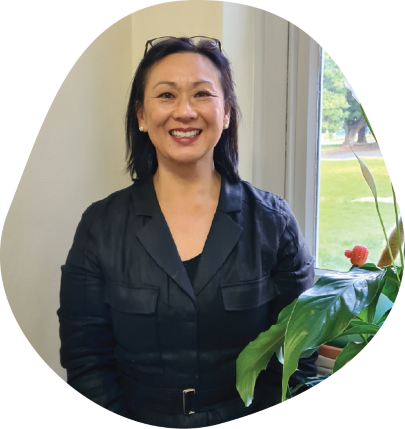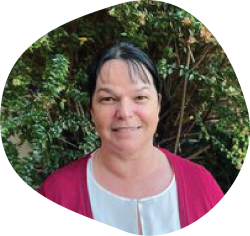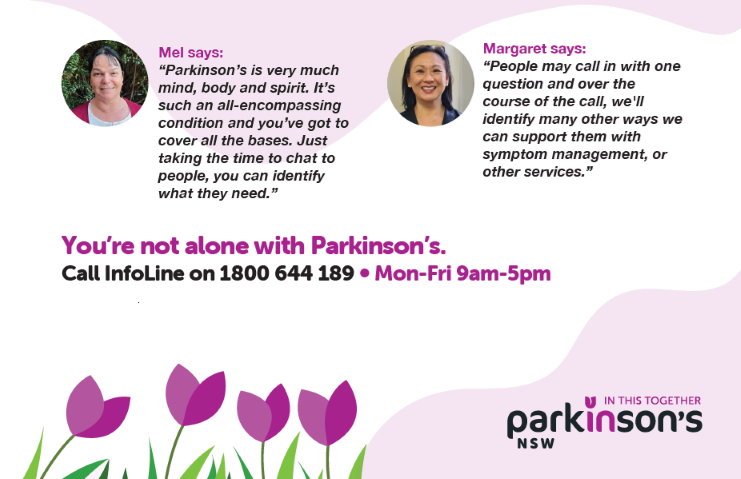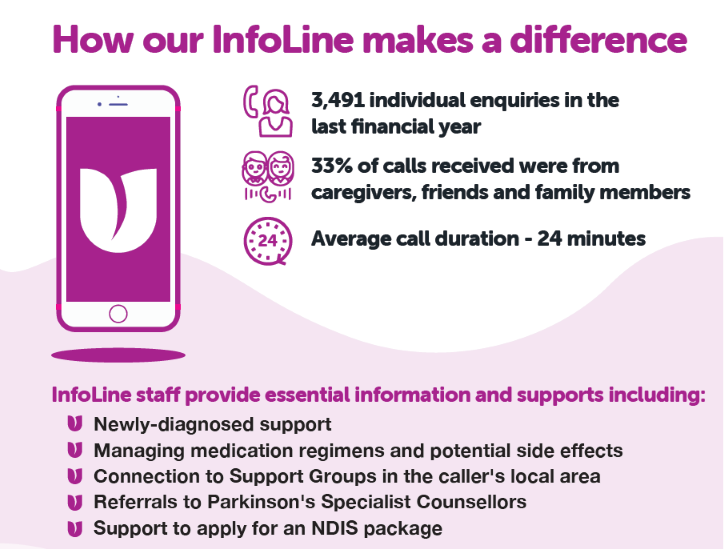“Everything we do is about helping to improve the quality of life for a person with Parkinson’s.”

Margaret - InfoLine Officer
The Parkinson's NSW InfoLine is there for anyone to access at no cost. For as long as people need. And as often as they need.
Receiving a diagnosis of Parkinson’s is a huge shock. The first neurologist’s appointment can feel like a blur, there’s just so much to process. This is when many people turn to our Parkinson’s NSW Information Line (InfoLine) for help.
That conversation can be one of the most important they will ever have.
Our InfoLine Officers, Mel and Margaret are trained to help people find solutions to manage their Parkinson’s, including connecting them to other services, like Support Groups, allied health professionals, or counselling.
They will talk to thousands of people over the course of the year. Every single one of them is looking for support – support which is incredibly hard to get anywhere else.
Gathering the right information is a skilled task. Some people need lots of help to come out of their shell and talk confidentially about their problems. Others are desperate to offload because of their anxiety and really need someone to just listen.
Mel and Margaret are there for every caller, whatever they need. This kind of service is absolutely essential for a condition like Parkinson’s.

Mel - InfoLine Officer
As one of the fastest growing conditions in Australia, it has a bewildering number of symptoms that change over time. Most people will live with Parkinson’s for many, many years, which puts a huge burden on our already overstretched health services.
Yet the government provides just three percent of our funding. It’s not nearly enough.
To keep people like Margaret and Mel on the line, we really need your support today.
A conversation with Margaret or Mel can also be life-changing for carers or family members struggling to make sense of what’s happening to someone they love.
One caller was distressed at some of the symptoms she’d seen in her friend, who’d recently relocated to a Residential Aged Care Facility.
“She was really grieving the loss of the friend she had known. I was able to help her understand how to support her friend more by providing education and information about Parkinson's, while comforting her to know that going to visit, share meals, and spend time together was really important. It was exactly what her friend needed, even though she couldn't express it.” – Margaret
Another caller was upset because she didn’t know how to help her elderly mum, who was deteriorating. Mel was able to help her figure out practical strategies the caller could use to make life better. That caller was so thankful, she rang back the next day to donate.
Mel and Margaret take the time to listen, really listen. For many people with Parkinson’s, it’s often the one thing most other health professionals they will encounter just can’t give.
“Whilst a Parkinsons diagnosis can be overwhelming at any age, Young Onset Parkinson’s for people in their late 30s or 40s has its own challenges. People are still of working age, they may be juggling a young family, caring for older family members and worries about future finances all play a part. It’s great they can reach out to us for advice and support, so we can connect them to services that our organisation provides, such as counselling, peer support groups and NDIS advocacy and to link them to external allied health. Having somewhere to turn, after they walk out the door of a neurologist’s office can be comforting and less isolating” – Margaret
Thanks to the support of people like you, our InfoLine is there for anyone to access at no cost. For as long as people need. And as often as they need.




